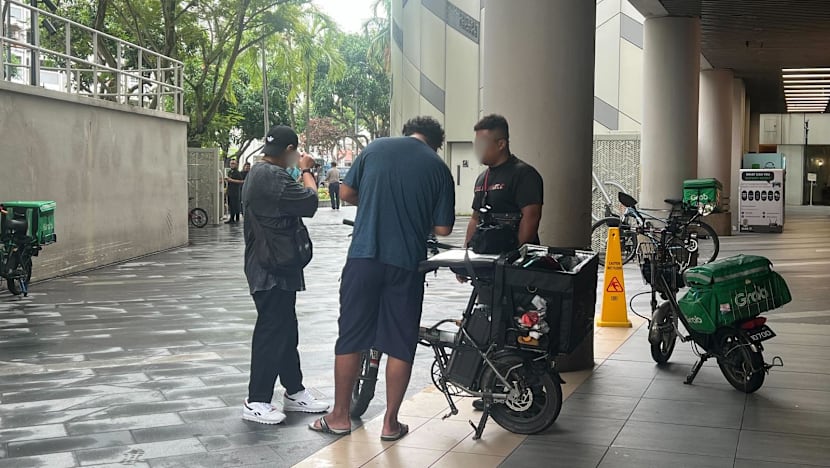Health
Singapore Enforcement Operation Nets Four for Vaping Offences

In a focused effort to combat vaping, Singapore’s Health Sciences Authority (HSA) and the National Environment Agency (NEA) conducted a four-day enforcement operation targeting popular areas such as Tampines and the Central Business District. During this operation, authorities apprehended four individuals, aged between 24 and 43, for various vaping-related offences, issuing fines on the spot.
The operation, which took place from September 17 to September 20, resulted in the seizure of a total of 27 e-vaporisers and associated components. Observers noted that officers conducted surveillance in plain clothes, blending in with the evening crowd as they monitored designated smoking corners around shopping malls. This strategy allowed them to catch offenders discreetly, with a significant focus on preventing underage smoking and other violations.
Details of the Enforcement Operation
On the evening of September 17, a contingent of HSA officers began their surveillance at 17:00. In a span of nearly three hours, two individuals were caught for vaping offences, with the first apprehended just ten minutes into the operation. HSA officers approached a delivery rider near a smoking corner and fined him immediately.
As the operation continued, NEA officers located another vaping user outside a mall. In compliance with the enforcement procedures, the man was asked to remove his shoes and jacket while his belongings were searched. Despite his pleas, he also faced immediate fines. It remains unclear whether these individuals were first-time offenders.
In addition to the vaping-related arrests, the operation also saw nine individuals caught for underage smoking, who were subsequently referred to the Health Promotion Board for further action. A 20-year-old caught with duty-unpaid cigarettes was referred to Singapore Customs officials, who arrived about an hour after his apprehension.
Increased Enforcement and Stricter Penalties
The crackdown on vaping in Singapore has intensified significantly. According to a statement from the Ministry of Health and the HSA on September 9, over 5,000 frontline enforcement officers have been authorized to enforce vaping regulations, nearly doubling the previous number.
Stricter penalties for vaping offences went into effect on September 1. For first-time offenders under 18, fines increased to S$500, while those aged 18 and above now face fines of S$700. Repeat offenders are required to participate in a three-month rehabilitation programme. Those who offend three times or more are subject to prosecution under the Tobacco (Control of Advertisements and Sale) Act (TCASA), facing maximum fines of S$2,000.
Particular attention is given to those caught using etomidate-laced vapes, commonly referred to as Kpods. Since September 1, etomidate has been classified as a Class C drug under the Misuse of Drugs Act, resulting in even harsher penalties for offenders. Those using Kpods must undergo rehabilitation programmes in addition to paying increased fines, with non-compliance leading to prosecution.
The joint operations by the HSA and NEA reflect Singapore’s commitment to maintaining strict regulations surrounding vaping, aiming to protect public health and prevent the rise of vaping among youth.
-

 World5 months ago
World5 months agoSouth Korea’s Foreign Minister Cho Hyun to Visit China This Week
-

 Business5 months ago
Business5 months agoStarling Bank Plans Secondary Share Sale, Targeting $5.4 Billion Valuation
-

 Top Stories5 months ago
Top Stories5 months agoMunsang College Celebrates 100 Years with Grand Ceremony
-

 World5 months ago
World5 months agoPAS Aims to Expand Parliamentary Influence in Upcoming Election
-

 Business7 months ago
Business7 months agoKenvue Dismisses CEO Thibaut Mongon as Strategic Review Advances
-

 Lifestyle6 months ago
Lifestyle6 months agoHumanism Camp Engages 250 Youths in Summer Fest 2025
-

 Sports6 months ago
Sports6 months agoDe Minaur Triumphs at Washington Open After Thrilling Comeback
-

 Sports7 months ago
Sports7 months agoTupou and Daugunu Join First Nations Squad for Lions Clash
-

 Top Stories7 months ago
Top Stories7 months agoColombian Senator Miguel Uribe Shows Signs of Recovery After Attack
-

 World7 months ago
World7 months agoASEAN Gears Up for Historic Joint Meeting of Foreign and Economic Ministers
-

 Health6 months ago
Health6 months agoNew Study Challenges Assumptions About Aging and Inflammation
-

 Business7 months ago
Business7 months agoOil Prices Surge Following New EU Sanctions on Russia









